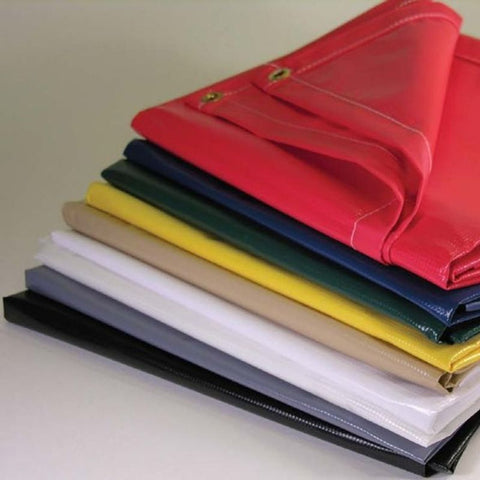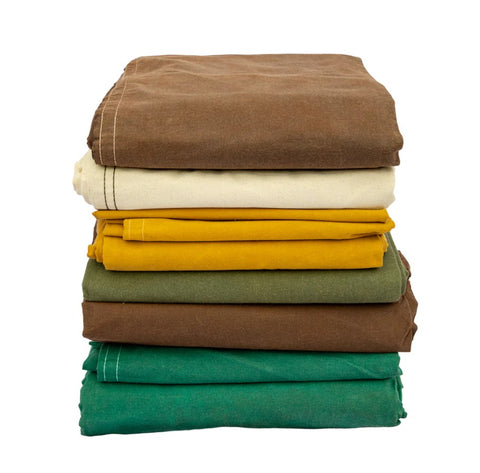When it comes to outdoor canopies, having the right tarp can make all the difference. Whether you're setting up a canopy for a backyard barbecue, protecting equipment at a construction site, or hosting an outdoor event, the quality of your tarp can significantly impact the longevity and effectiveness of your canopy. With a myriad of options available, choosing the best tarps for canopies can seem like a daunting task. However, by understanding the importance of tarp covering, exploring different types of tarps, and considering key factors such as waterproofing and durability, you can make an informed decision that ensures your canopy remains protected and functional in various weather conditions. In this comprehensive guide, we'll delve into the intricacies of selecting the perfect tarps for your canopy needs, providing valuable insights and tips to help you make the right choice. Whether you're a homeowner, event planner, or outdoor enthusiast, this guide will equip you with the knowledge to confidently select the best tarps for your canopy, ensuring optimal protection and longevity.
Understanding the Importance of Tarp Covering for Canopies

When it comes to protecting your outdoor canopy, choosing the right tarp is crucial. Tarps provide essential coverage against the elements, shielding your canopy from rain, UV rays, wind, and debris. They serve as a barrier, preserving the integrity of your canopy and extending its lifespan. Whether you're using a canopy for backyard gatherings, outdoor events, or commercial purposes, investing in quality tarps is essential for maintaining its functionality and appearance.
Exploring Different Types of Tarps for Canopy Protection
There are various types of tarps available, each designed to meet specific needs and preferences.
Poly Tarps

Polyethylene tarps, also known as poly tarps, are popular due to their affordability and versatility. They are waterproof tarps that offer basic protection against moisture and sunlight and come in a range of colors and sizes.
Vinyl Tarps

Vinyl tarps, on the other hand, are more durable and provide superior resistance to tears and UV rays. Vinyl tarps are waterproof and are ideal for long-term or heavy-duty use, such as covering vehicles or equipment.
Canvas Tarps

Canvas tarps which are water resistant offer a natural and breathable alternative, suitable for essential ventilation applications. They are often used for artistic or aesthetic purposes, such as creating shade sails or rustic outdoor decor.
Mesh Tarps

Mesh tarps provide excellent airflow while still offering protection against the sun and light rain, making them suitable for windy environments or agricultural use.
Key Factors to Consider When Selecting Tarps for Canopies
When choosing tarps for your canopy, several factors should be taken into account.
Size and Dimensions
Size and dimensions are essential to ensure proper coverage and fit. Make sure to measure your canopy accurately and select a tarp that matches its dimensions.
Material and Thickness
Additionally, consider the material and thickness of the tarp, as well as its UV resistance and waterproofing capabilities.
Reinforcement
Reinforced edges and grommets can enhance durability and make installation easier.
Waterproofing Strategies: Ensuring Durability of Your Tarp Covering

Waterproofing is crucial for protecting your canopy from rain and moisture damage. Look for tarps treated with waterproof coatings or laminations to ensure maximum water resistance. Sealed seams and double-stitched hems can also prevent water from seeping through vulnerable areas. Regularly applying waterproofing sprays or treatments can further enhance the tarp's durability and longevity, especially in harsh weather conditions.
Comparing Various Waterproof Tarps for Canopies
When comparing waterproof tarps, consider factors such as material quality, thickness, and construction. Heavy-duty polyethylene or vinyl tarps are typically more waterproof than lighter-weight options. Look for tarps with high denier ratings and tight weave patterns for superior water resistance. Coated or laminated tarps offer added protection against moisture penetration, making them suitable for long-term outdoor use.
Tips for Maintaining and Extending the Lifespan of Your Canopy Tarps
To prolong the lifespan of your canopy tarps, proper maintenance is essential. Regularly inspect your tarps for signs of wear and tear, such as tears, holes, or mold growth. Clean them regularly with mild soap and water to remove dirt, debris, and stains. Avoid storing wet tarps to prevent mold and mildew growth. When not in use, store your tarps in a dry, well-ventilated area away from direct sunlight and extreme temperatures.
Innovative Solutions: Advanced Features in Modern Tarps for Canopies

Advancements in tarp technology have led to the development of innovative features designed to enhance performance and convenience. Some tarps have built-in UV inhibitors to prevent fading and sun damage. Others feature reinforced corners and edges for added strength and durability. Some tarps even incorporate reflective coatings to reduce heat absorption and keep the covered area cooler in hot weather.
Practical Applications: Utilizing Tarps Effectively for Canopy Protection

Tarps can be used in a variety of practical applications to protect canopies and outdoor spaces. They can cover and secure outdoor furniture, equipment, or vehicles during inclement weather. Tarps can also be used to create temporary shelters or shade structures for events, camping, or construction sites. With the right tarp, you can ensure that your canopy remains protected and functional year-round.
In conclusion, choosing the best tarps for canopies is essential for maintaining their integrity and prolonging their lifespan. By considering factors such as material, size, waterproofing, and maintenance, you can select tarps that offer optimal protection against the elements. Whether for personal or commercial use, investing in quality tarps will ensure that your canopies remain reliable and durable for years to come.





